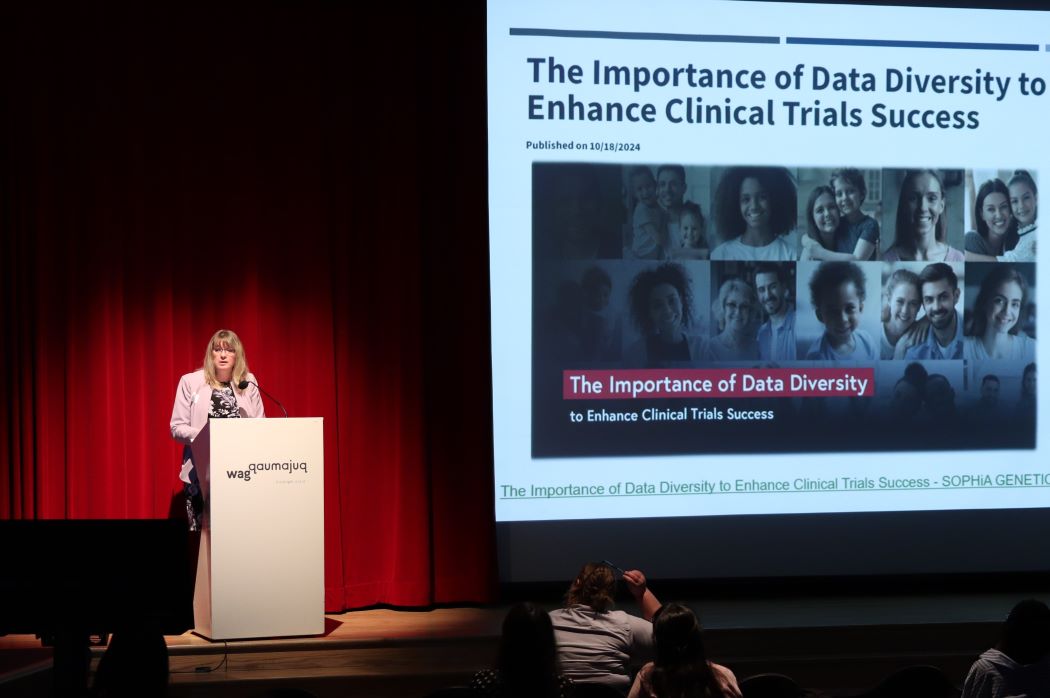
Dr. Laura Saward said there is still much work to be done to ensure equitable participation in clinical trials.
Don’t let others define you, women scientists advise at WISDOM symposium
Dr. Edie Dullaghan was a wife and mother living in England when she first enrolled in university as a mature student in the 1990s.
Her bachelor’s program in applied biology was supposed to include an eight-month co-op placement that would give her work experience.
But the male academic in charge told her, “We’ve decided we’re not sending you on a co-op because you’re not likely to ever work as a scientist,” Dullaghan recounted at the 2024 Equity Symposium held by Women in Science: Development, Outreach and Mentorship (WISDOM).
Dullaghan accepted what this authority figure told her. Then a phone call changed her life. The prestigious National Institute for Medical Research urgently needed a student, and she was the only one without a co-op placement.
“Lo and behold, I go and do my co-op there, and the head of the lab in the parasitology division mentored me. I started to understand what being included meant.”
That mentor’s belief in her abilities set Dullaghan on a path that eventually brought her to Canada as a postdoctoral fellow. She went on to hold influential leadership roles in the pharmaceutical industry and non-profit sector.
Like the other women in science who addressed about 70 symposium attendees on Oct. 30 at the Winnipeg Art Gallery, she advised aspiring female scientists to find supportive mentors and champions; network as much as possible; promote equity, diversity and inclusion; and believe in their own passions, strengths and skills.
“If you’re a member of an equity-seeking group, don’t let others define what you are capable of,” said the Vancouver-based Dullaghan.
WISDOM is an organization supported by the Rady Faculty of Health Sciences that works to connect and encourage women in science. This year’s symposium theme was “Equity in Science: Beyond Academia.”
All four invited speakers started out as hands-on lab scientists and later made transitions into senior leadership positions outside academia.
Dr. Laura Saward, executive vice president (health and medical) at Adva Diagnostics and assistant professor of medical microbiology and infectious diseases at UM, presented evidence of the strong business case for diversity, equity and inclusion.
In the context of drug development, she said, there is still much equity work to be done to ensure that those who participate in clinical trials represent the populations who will use the drugs. For example, a study found that 75 per cent of participants in clinical trials in 2020 were white.
Saward’s career advice for women scientists included, “Take chances – maybe very uncomfortable chances…. Be curious and be bold.”
Nichola Wigle, acting CEO of the Children’s Hospital Research Institute of Manitoba (CHRIM), spoke about taking on challenges even though she felt fearful and overwhelmed. When she was asked to lead CHRIM’s efforts to embed justice, equity, diversity and inclusion within its operations, she said, she had to find mentors and reflect on her own biases and privilege.
Wigle counselled emerging scientists to identify their transferable skills, which could lead to unexpected career pathways. “It’s about not putting yourself in a box,” she said.
Dr. Sri Navaratnam, president and CEO of CancerCare Manitoba, recounted a professional journey that began when she earned her medical degree in her home country of Sri Lanka. After coming to Manitoba, completing a PhD and doing a medical residency, Navaratnam became a clinician-scientist focused on lung cancer.
When you’re considering a major career transition, such as Navaratnam made when she took the top executive job at CancerCare, listen to what your core is telling you, she said. “The most important driver is you need to be true to yourself.… Don’t do it for prestige, or for others.”
At the symposium, two UM learners also gave presentations. Jenna Villarba, a PhD student in the College of Pharmacy, spoke about co-designing research with people who have lived experience of opioid use disorder.
Dr. Minoo Dabiri Golchin, a postdoctoral fellow in occupational therapy and computer science, discussed her research related to facilitating play for children with disabilities.






